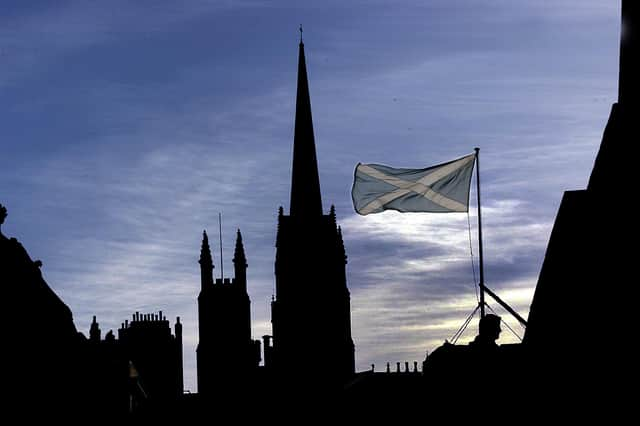Scotland's economy 'at a crossroads' amid fears of fresh Covid impact


The economy is experiencing a fragile recovery and is at a “crucial crossroads”, according to the researchers at the University of Strathclyde.
A report by the institute warns the country faces “taking a step backwards” because of the spike in coronavirus cases, with a recovery expected to take between one and four years, depending on what restrictions are needed in the future and the development of a vaccine.
Advertisement
Hide AdAdvertisement
Hide AdScenario planning by the institute found that challenges around test and trace challenges, the looming winter months and associated illnesses and the rising coronavirus infection rate could mean the economy is in “limbo” for the next six months.
Mairi Spowage, deputy director of the institute, said: “Whilst a tentative recovery is under way, the economy is a long way off where it was before the start of the crisis.
“We have therefore reached a crucial crossroads in our recovery from the crisis.
“What happens next will depend on the evolution of the pandemic, measures taken to protect public health, and how governments, households and businesses respond to these factors.
“All of these remain hugely unclear.
“What is striking about the immediate outlook is just how uncertain it is – indeed, it is hard to think of a past occasion when the range of possible outcomes has been so wide.
“What we can agree on, however, is that the task of rebuilding our economy will take years.”
In their Deloitte-sponsored economic commentary, the institute argues that the ending of the UK Government’s furlough scheme will be a pivotal moment in the recovery.
Stating that the Chancellor’s replacement job support scheme is “much less generous”, it adds: “Removing the furlough scheme too early, particularly in sectors like hospitality and tourism, has the potential to undermine the good work done to date.”
Advertisement
Hide AdAdvertisement
Hide AdProfessor Graeme Roy, the institute’s director, said: “History is likely to judge the Chancellor’s decision to pay 80% of workers’ wages during the height of the lockdown as one of the most effective policy responses to any economic crisis in history. Over nine million workers have benefited.
“The new scheme is very different, and given the relatively minor subsidy it provides for wages, it is unlikely to protect jobs, hours and incomes in those sectors who are really suffering.”
Prof Roy also said that the cancellation of the UK Budget “throws up all manner of implications for tax devolution and public spending”, with the Scottish Government having to set policies not knowing their final budget allocation, adding to economic uncertainty.
He said: “Both governments have a responsibility. Yes, the Scottish Government needs to be much more open about the financial scenarios it faces. But the UK Government needs to have a much greater appreciation of the knock-on impact of its decisions, such as the cancellation of the Autumn Budget, on devolved policymaking.
“Devolution shouldn’t be seen as an afterthought.”